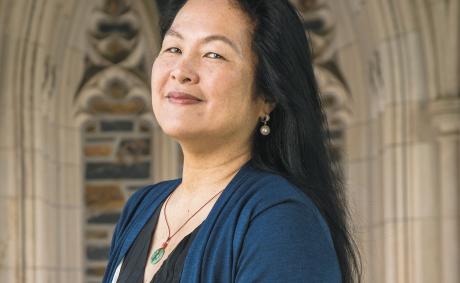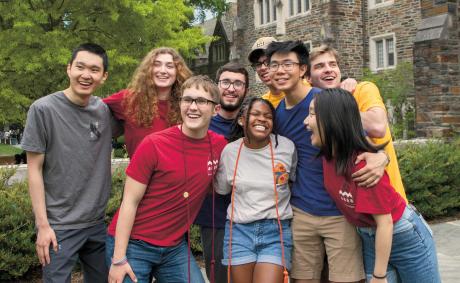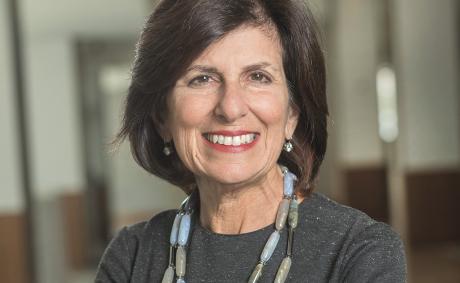Amanda Martin
Senior lecturing fellow and supervising attorney, First Amendment Clinic, Duke Law


“My mom had this tiny Superior Cub Rotary Printing Press when she was a kid in the 1940s. After cranking out breaking news such as ‘A bowl game will be played by Dick G. and Lynn W. soon’ as a child – the sheet I found in the box – she went on to work on her high school newspaper, to write mini-musicals in college and sometimes to write for our local newspaper when I was growing up. I was a journalism major in college and as a lawyer have represented newspapers for 30 years, which is why I jumped at the chance to work as the supervising attorney in the Duke Law First Amendment Clinic. When I see this on the shelf in my office, I love being reminded of my mom and her love of words, which she passed on to my brother and me.”
Richard Larrick
Associate dean and Hanes Corporation Foundation professor, Fuqua School of Business

“The general theme of my office is ‘stuff my spouse doesn’t want at home.’ The Sylvan Esso pennant comes from a concert I saw at the old Durham Athletic Park. It represented freedom from COVID! The Hanes thermal underwear ad is in honor of my endowed chair at Fuqua.
Ernesto Ortiz
Senior manager of programs and public health practitioner, Duke Global Health Institute
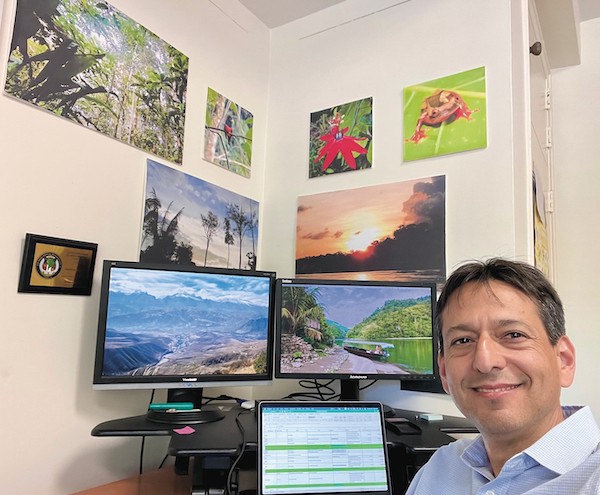
“This is my work corner. It contains pictures taken by me during my work in the field in the Peruvian Amazon and Highlands. These amazing remote locations always remind me of where I am from, but also remind me of the people that live there, [underserved populations] in the ‘last mile,’ and their health and living conditions, which I am always trying to impact with my work in public health.”
Daniel Gross
Assistant professor in the strategy area, Fuqua School of Business
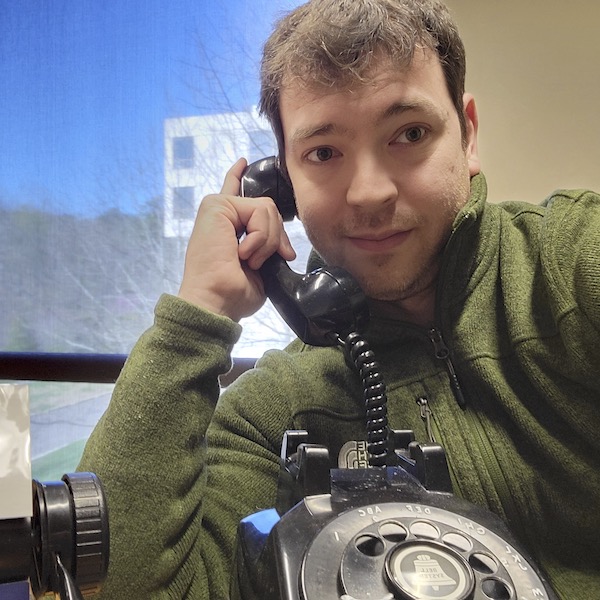
“I have the phone because in some of my research, I’ve studied AT&T’s mechanization of telephone service, as it replaced local operators with dial service. AT&T used to be the biggest company in America, employing hundreds of thousands of mostly women operators, and we used this episode to study how telephone operators and the wider labor market adjusted to automation. We also explore, in parallel work, why it took AT&T many decades to fully automate operators across the complete U.S. telephone network. I keep the phone in my office to remind students what telephones used to look like – and to explain why we ‘dial’ phone numbers instead of ‘tapping’ them out!”
